 The technological world is all around us and developing at a speed that is impossible to keep up with. Adolescents are now more connected to technology than ever before and face both opportunities and obstacles online. Learning to use technology is similar to learning how to drive a car; there are risks involved, and drivers need to learn certain rules and receive gentle guidance before driving on their own. Parents in both scenarios should be in the passenger seat next to their child: setting boundaries, but giving their child the autonomy to eventually thrive on their own. It’s easy to be afraid of the unknown in the digital world, but parental involvement is essential.
The technological world is all around us and developing at a speed that is impossible to keep up with. Adolescents are now more connected to technology than ever before and face both opportunities and obstacles online. Learning to use technology is similar to learning how to drive a car; there are risks involved, and drivers need to learn certain rules and receive gentle guidance before driving on their own. Parents in both scenarios should be in the passenger seat next to their child: setting boundaries, but giving their child the autonomy to eventually thrive on their own. It’s easy to be afraid of the unknown in the digital world, but parental involvement is essential. As a kid who grew up when technology was developing at an exponential rate, my parents never taught me about safe internet usage. This may have been because they had no idea that it would grow to play such a big part in our lives. As a result, I had to learn to navigate the internet on my own and find a way to handle the emotions that came with my newfound virtual social life and constant access to information. The internet was a place where I learned about the world and formed aspects of my identity while sitting at the desk in my room. I was consuming and had access to endless amounts of information, much of which my parents were unaware of. I often felt overwhelmed by the endless exposure, and looking back, I could have benefited from guidance on how to navigate the online world meaningfully.
My experience is not a unique one. With kids having access to technology at increasingly younger ages, parents can often feel unprepared to help their children manage their online life. As a result, some end up erring on the side of being restrictive. Recent research by Senior Research Scientist Linda Charmaraman, Ph.D., Postdoctoral Research Scientist J. Maya Hernandez, Ph.D., and their coauthors shows that restrictive digital monitoring can be associated with more problematic use of technology in adolescents. Indeed, whenever my parents implemented harsher restrictions, such as monitoring texts, it encouraged a sense of rebellion and wanting to use my phone behind their backs.
Instead, I wish my parents had discussed certain digital rules and gained insights into my perspective, so that I had a say in the rules governing my tech use. Although there is a need to set boundaries, overly strict measures can backfire. Combining boundaries and open communication is necessary to establish healthy digital habits as well as encourage family bonds.
My parents did implement certain rules that helped me form healthier digital habits. While I was in middle school, I could not use my phone until I finished my homework. While frustrating, this rule limited distractions and motivated me to finish my homework. I was also not allowed to use electronic devices when eating meals at the dinner table, which encouraged family interaction and bonding. These rules helped me form healthy habits of managing responsibilities before indulging in screen time, and I saw an improvement in my grades and my relationship with my family as a result. Similarly, the 2023 U.S. Surgeon General’s advisory asserts that parents should set up “tech-free” zones to encourage healthy routines. Having boundaries around tech usage taught me discipline, which made it easier to balance online and offline life as I grew older.
Not all of my parents’ restrictions were beneficial long term. Warnings like “Don’t talk to strangers online!” or “You’re ruining your eyes!” painted technology as a danger. While their intentions were protective, studies suggest that portraying technology as a tool is more beneficial for adolescents. The warnings I received from my parents heightened my belief that they did not understand my technological problems, and that I could not go to them for advice. A more collaborative approach might have felt less invasive and encouraged trust rather than rebellion.
Just as new drivers need supervision before driving on their own, children need guidance on technology use before they can utilize it on their own. By combining clear rules, open discussions, and being role models of tech use, parents can help their children develop a balanced and healthy approach to the digital world. Let’s commit to creating a supportive experience that empowers our children to consume technology responsibly.
Ashley Yang is a member of the Wellesley College Class of 2025 who majored in media arts and sciences and psychology.







 Last year, the U.S. Surgeon General
Last year, the U.S. Surgeon General 
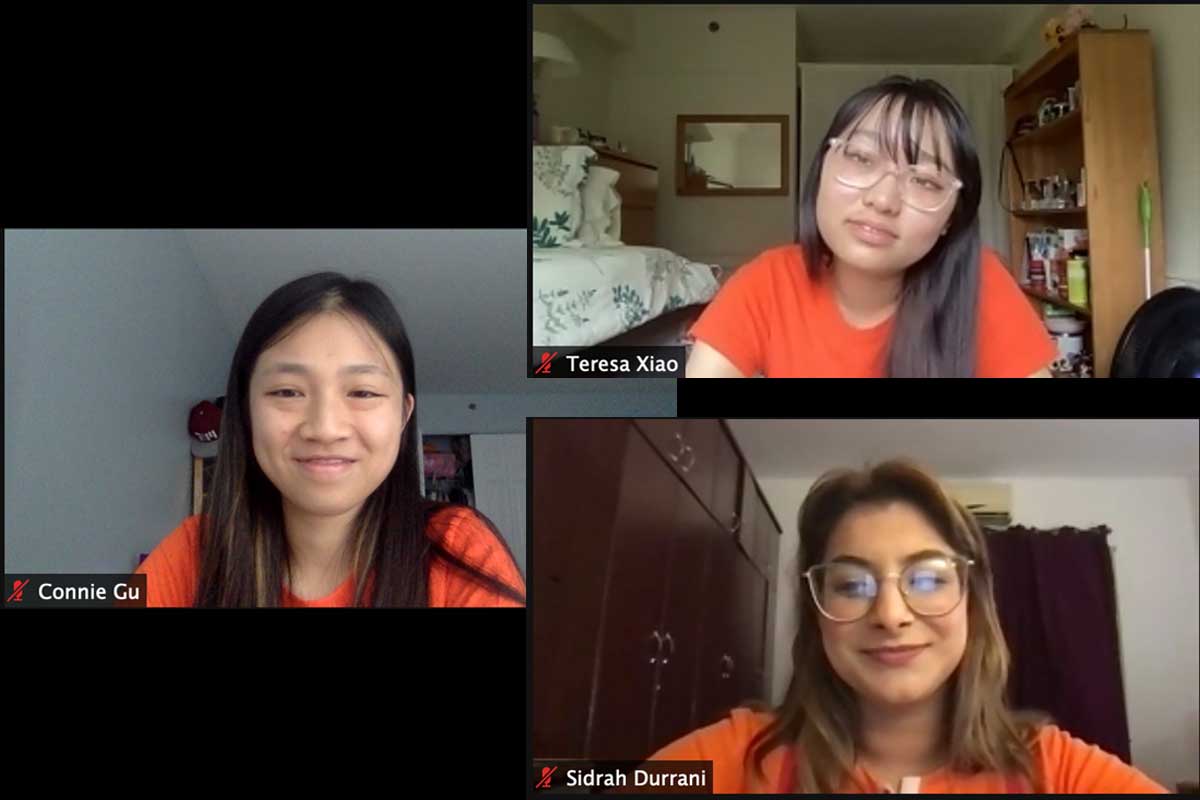



 I never knew that I would have the opportunity to do social science research as an undergraduate until I got to Wellesley College. Towards the end of my first year, with my academic interests starting to gravitate toward Sociology and South Asia Studies, I knew I wanted to connect the concepts I was learning in the classroom to action-oriented research that produced tangible results for communities that I cared about. Through the helpful guidance of my peers, professors, and mentors, I discovered that I could get that opportunity by working at the Wellesley Centers for Women.
I never knew that I would have the opportunity to do social science research as an undergraduate until I got to Wellesley College. Towards the end of my first year, with my academic interests starting to gravitate toward Sociology and South Asia Studies, I knew I wanted to connect the concepts I was learning in the classroom to action-oriented research that produced tangible results for communities that I cared about. Through the helpful guidance of my peers, professors, and mentors, I discovered that I could get that opportunity by working at the Wellesley Centers for Women.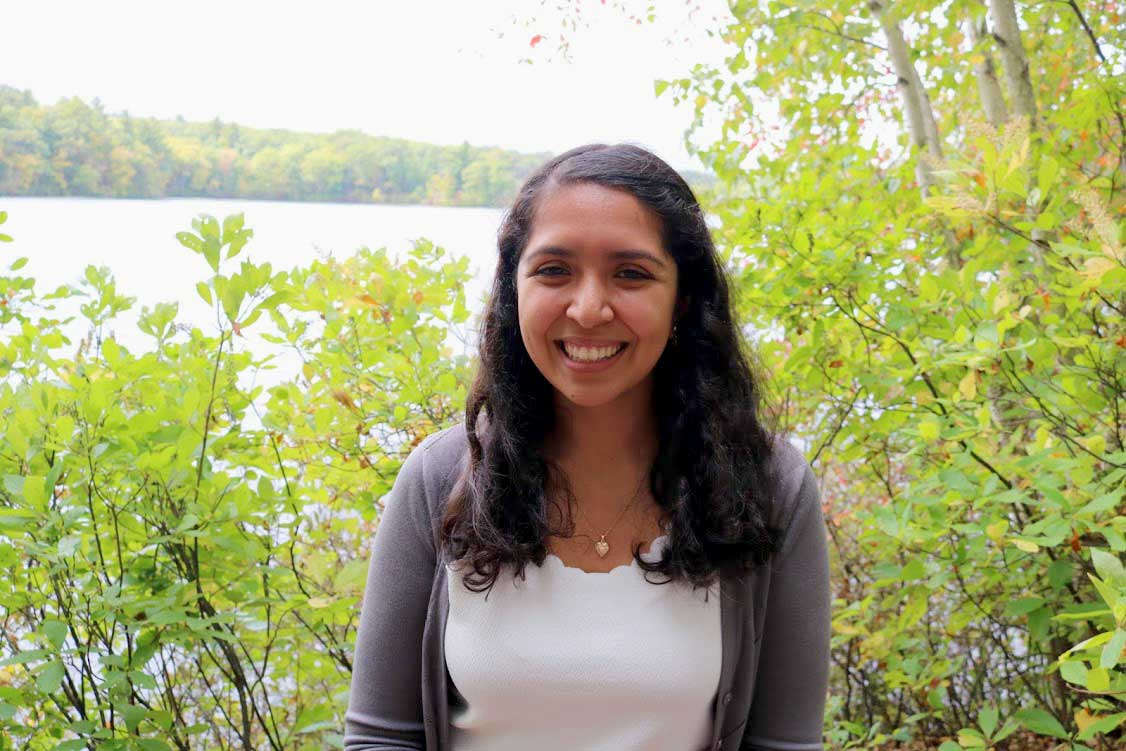 It is the spring of 2020, and my senior year at Wellesley College is not at all what I imagined it would be like. Before concerns about COVID-19 led
It is the spring of 2020, and my senior year at Wellesley College is not at all what I imagined it would be like. Before concerns about COVID-19 led  A recent
A recent 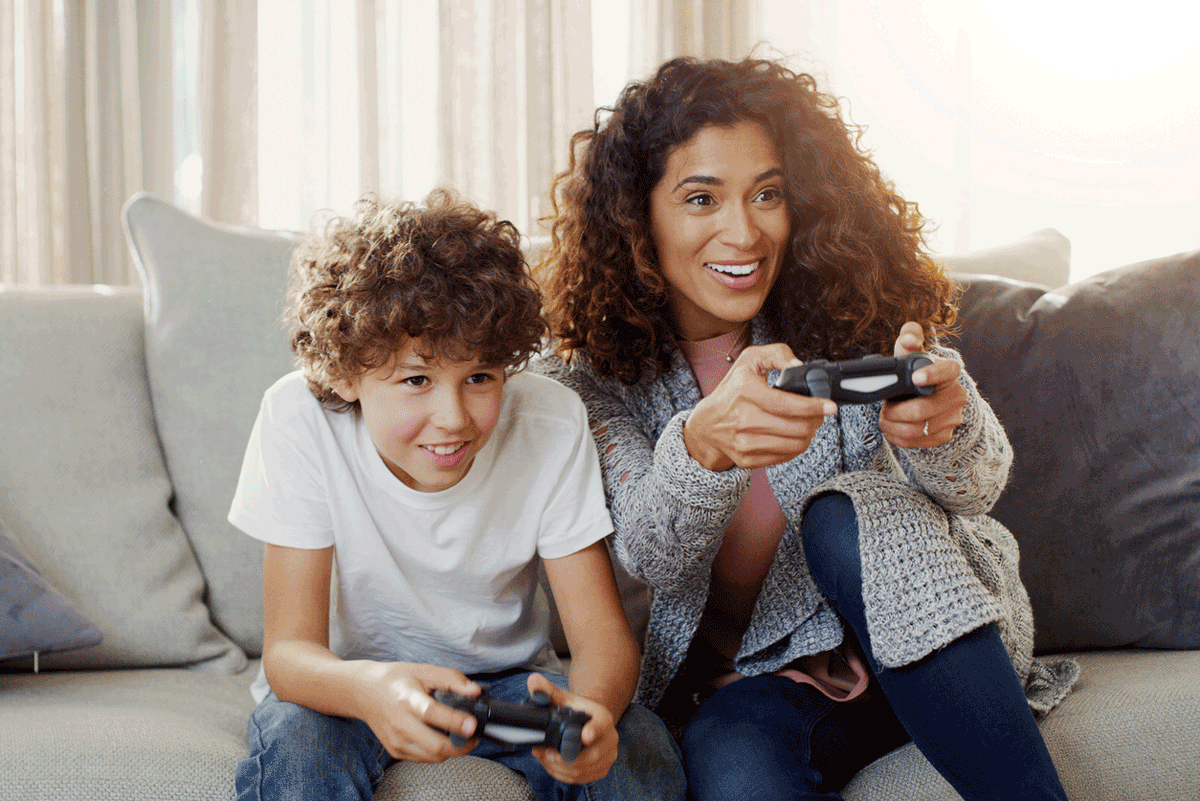 Video games are on my mind these days. Especially violent ones, like Call of Duty or Grand Theft Auto. But special recognition goes to
Video games are on my mind these days. Especially violent ones, like Call of Duty or Grand Theft Auto. But special recognition goes to 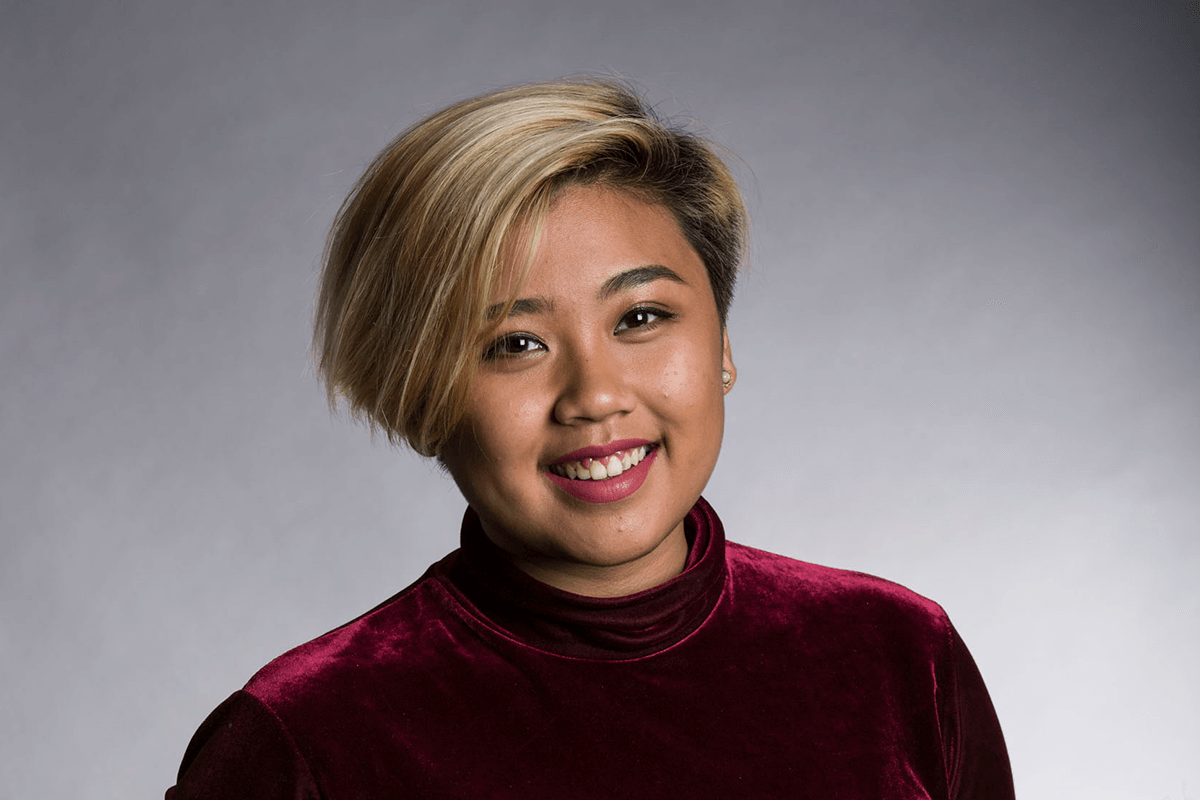 By the end of my first year at Wellesley College, I knew that I wanted to explore the world of research. I had taken the first of many gender studies courses to come, and left class with a head full of questions that I not only wanted answers to, but wanted to take a stake at answering. A stroke of luck brought me to an event for students to meet with research scientists at the Wellesley Center for Women. A stroke of better luck brought me to Dr.
By the end of my first year at Wellesley College, I knew that I wanted to explore the world of research. I had taken the first of many gender studies courses to come, and left class with a head full of questions that I not only wanted answers to, but wanted to take a stake at answering. A stroke of luck brought me to an event for students to meet with research scientists at the Wellesley Center for Women. A stroke of better luck brought me to Dr. 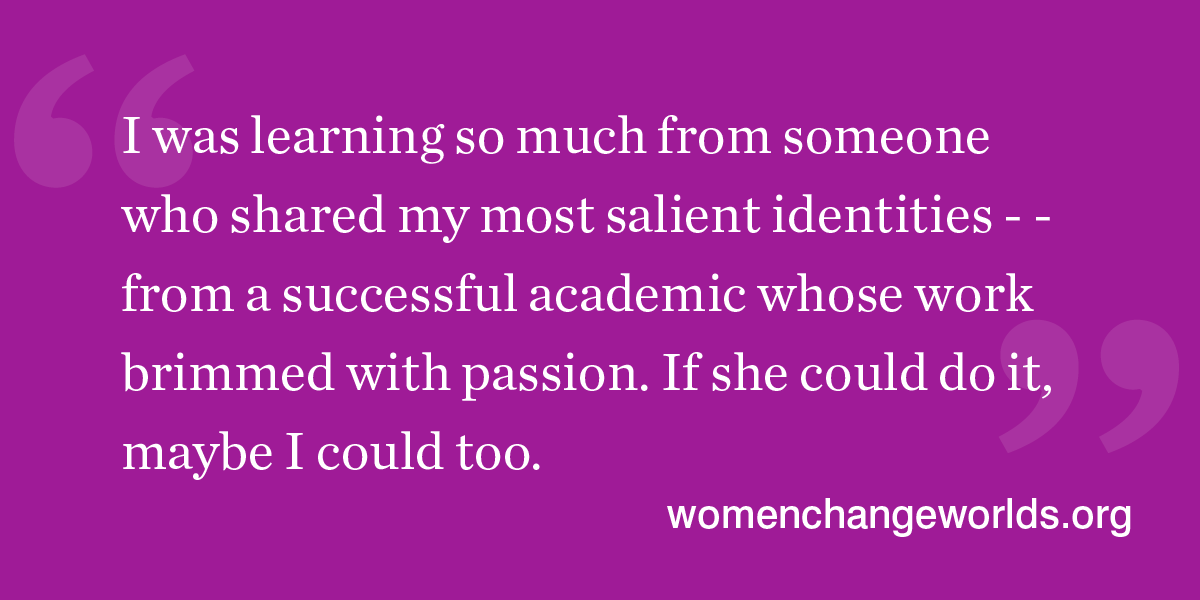 The power of representation became personal when I began to cultivate a mentor-mentee relationship with Linda. Our weekly/bi-weekly research check-ins were not only crucial for the advancement of the qualitative research we were conducting and my own research skills, but also for developing my own sense of worth and potential. Little by little, I was able to learn about Linda’s life and experiences, research and otherwise. I found out she was Thai (like me)! I found out that she also struggled in her undergraduate years (who knew that researchers were not perfect?). She spoke about her queerness in ways that normalized my own burgeoning questions about sexuality and gender. She validated my questions, hopes, and fears no matter how naive, incomplete, or overwhelming. I was learning so much from someone who shared my most salient identities - - from a successful academic whose work brimmed with passion. If she could do it, maybe I could too.
The power of representation became personal when I began to cultivate a mentor-mentee relationship with Linda. Our weekly/bi-weekly research check-ins were not only crucial for the advancement of the qualitative research we were conducting and my own research skills, but also for developing my own sense of worth and potential. Little by little, I was able to learn about Linda’s life and experiences, research and otherwise. I found out she was Thai (like me)! I found out that she also struggled in her undergraduate years (who knew that researchers were not perfect?). She spoke about her queerness in ways that normalized my own burgeoning questions about sexuality and gender. She validated my questions, hopes, and fears no matter how naive, incomplete, or overwhelming. I was learning so much from someone who shared my most salient identities - - from a successful academic whose work brimmed with passion. If she could do it, maybe I could too.
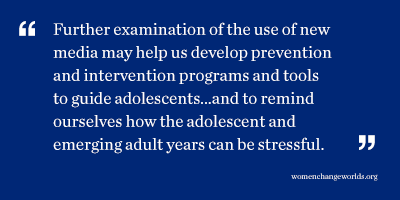 Media coverage about social media has not been kind—often linking its use with cyberbullying, sexual predators, and depression or loneliness. But recent scholarship on new media demonstrates that interpersonal communication, online and offline, plays a vital role in integrating people into their communities by helping them build support, maintain ties, and promote trust. Social media is often used to escape from the pressures of life and alter moods, to secure an audience for self-disclosures, and to widen social networks and increase social capital. The
Media coverage about social media has not been kind—often linking its use with cyberbullying, sexual predators, and depression or loneliness. But recent scholarship on new media demonstrates that interpersonal communication, online and offline, plays a vital role in integrating people into their communities by helping them build support, maintain ties, and promote trust. Social media is often used to escape from the pressures of life and alter moods, to secure an audience for self-disclosures, and to widen social networks and increase social capital. The 